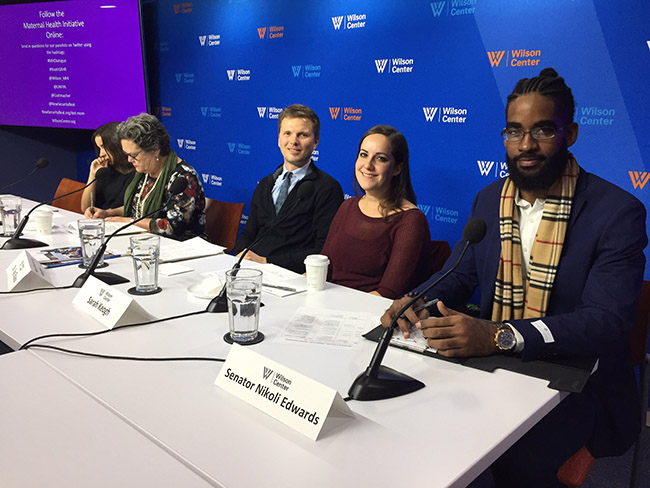WASHINGTON – Sex and sexuality are an essential part of who we are. But, teaching children and teens about those topics is fraught with controversy. It can require input and approval from parents, religious leaders, politicians, educators and school officials.
“You have to have tough skin to get into this work,” said Nikoli Edwards, a youth activist and senator from Trinidad and Tobago.
Edwards was among experts working in Russia, Latin America and Africa on adolescents’ health and rights who spoke at the Woodrow Wilson Center on Tuesday.
Young people are the “experts of their own experience,” Edwards said, and must be “mainstreamed into the decision-making process” about how they learn to navigate their emerging sexuality.
“It is really important to ensure young people lay down a solid foundation of positive behaviors to take them into adulthood,” said Cate Lane of Pathfinder International.
The experts praised UNESCO’s comprehensive sexuality education curriculum, which is more than sex education. UNESCO’s approach goes beyond teaching young people about contraception or how to use a condom. It focuses on the process of developing healthy attitudes toward sexuality beginning in early childhood.
A UNESCO guidance on sexuality education includes eight key concepts:
- Relationships starting with families and friendship, then moving to romantic love;
- The effect of society and culture in developing sexuality values;
- Social construction of gender, including stereotypes and bias;
- Violence and how to stay safe, physically and online;
- Communication skills including consent and refusal;
- The human body and development;
- Sexual behavior;
- Reproductive health and pregnancy prevention.
UNESCO’s age-appropriate curriculum begins with ages 5 to 8 years, then moves to youth ages 9 to 12, 12 to 15, and 15 to 18 and above. The aim is to equip children with knowledge to “ensure the protection of their rights throughout their lives.”
“Why is it so difficult to talk about sex and sexuality?” asked Preston Mitchum of Advocates for Youth. The United States also has advocates for abstinence-only education, and those who believe sex education should not be taught in schools.
Dr. Ilya Zhukov of Russia, who works for the United Nations Population Fund, confessed that even though he has a medical degree and has worked in HIV education and prevention, he had difficulty talking about his own sexuality because of growing up in an “oppressive environment” in Russia during Perestroika.
“Sexuality is about our humanity,” encompassing attitudes about our bodies, relationships, love and gender identity, said Zhukov. “All of these dimensions are affected by political, social and psychological factors.”
The panelists discussed the importance of adapting teaching to diverse types of people — LGBTQ, trans or those with disabilities – as well as finding teachers comfortable with the curriculum.
Ukranian Lada Nuzhna, of the movement Teenergizer!, told a story about doing a teacher training. At the end of the session, the teacher expressed discomfort with the subject matter. “Even if we have great sexuality education, it doesn’t mean it’s adapted to everyone in the group or that we have teachers who are capable of teaching it,” Nuzhna said.
Comprehensive sexuality education also can be taught outside of school. And there are websites for youth, such as amaze.org and advocates4cse.com, that can reduce young people’s embarrassment when learning about sex and sexuality.
Despite all of the experts in this field, and the number of NGOs developing programs to empower youth to develop healthy sexuality, it is difficult to implement this curriculum in many parts of the world. Religious objections and customs such as child marriage are difficult to overcome. In addition, politicians can be fearful of alienating conservative constituents by advocating for such programs.
But, the panelists agreed, youth should be viewed by politicians as an asset, not a problem to be dealt with or avoided. “There is a saying,” Sen. Edwards said. “A child neglected by his village will burn it down to feel its warmth.”
Dr. Zhukov offered this advice. “If you close your eyes to facts, you will learn by accidents.”

